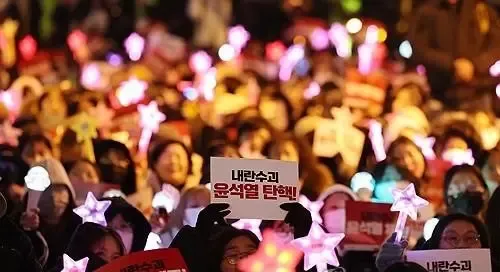Significant Decline in Consumer Sentiment in South Korea Recorded in December

Seoul, Dec 24 (NationPress) South Korea's consumer sentiment witnessed a notable decline in December, marking the largest decrease since the onset of the Covid-19 pandemic. This downturn was fueled by political unrest following President Yoon Suk Yeol's unexpected declaration of martial law, adding a layer of uncertainty to the economy, as revealed by a central bank poll on Tuesday.
The composite consumer sentiment index recorded a value of 88.4 this month, reflecting a drop of 12.3 points from the previous month’s 100.7, based on the survey conducted by the Bank of Korea (BOK).
This December figure represents the lowest point since November 2022, when the index stood at 86.6. Furthermore, it marks the steepest decline since March 2020, when the index fell by 18.3 points. A score above 100 indicates that optimists outnumber pessimists, as reported by the Yonhap news agency.
According to a BOK official, "This is the third consecutive month of decline. The martial law situation seems to have negatively impacted sentiment, which was already deteriorating following the U.S. presidential election and concerns over economic growth."
The political turmoil has adversely affected both the economy and the market after Yoon's martial law declaration on December 3 and the subsequent impeachment vote by the National Assembly.
Earlier this month, the stock market plunged to its lowest level of the year, while the Korean currency fell to its weakest point in over 15 years, hovering around the 1,450 won mark against the U.S. dollar.
In response to stabilize the markets, financial authorities have promised to inject "unlimited liquidity" and utilize all available measures.
This martial law crisis has emerged at a time when the nation is expected to experience slower economic growth in 2025 compared to this year, primarily due to weak exports and declining domestic demand.
The BOK projects that the South Korean economy will grow by 1.9 percent next year, a decline from this year's 2.2 percent growth rate in 2024.
Compounding these challenges are changes in U.S. policies under the incoming Donald Trump administration, as the president-elect has pledged to impose high tariffs on imported goods and execute a series of protectionist measures.
Ordinary citizens anticipate that consumer prices will rise by 2.9 percent over the upcoming year, an increase from the previous month's 2.8 percent, according to the BOK.









